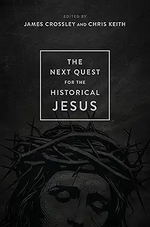1Heidegger1!
Member
- Joined
- Nov 17, 2021
- Messages
- 204
- Basic Beliefs
- Theoretical Agnostic / Pragmatic Atheist

(The Devil whispers to the Antichrist; detail from Sermons and Deeds of the Antichrist, Luca Signorelli, 1501, Orvieto Cathedral. Wiki)
The word “antichrist” is used only in the Epistles of John, although a similar idea of “pseudochrist” (“false messiah”) is used by Jesus in Matthew 24:24 and Mark 13:22. In John’s epistles the term seems to alternate between a person antichrist and a group of people identified as antichrists. Church father Polycarp understood the word as a group. 2 Thessalonians, a letter that is in dispute as to whether it is Paul’s or a later follower, identifies a man of sin traditionally understood to be the antichrist who was a real existential threat to deceiving the believer because the time of the end was imminent in Paul’s mind (the resurrected Christ being the “first fruits” of the end time harvest of souls). This figure is more fully explored in Revelation as the Beast of the Sea.
The notion of “anti-christ (s)” linguistically in the Greek suggests someone in opposition to Christ, but also someone who replaces Christ. The issue clearly seems to be antichrist refers to those preaching a Jesus apart from cross and resurrection theology, such as the historical Jesus of Ehrman’s interpretation contra Paul. Ehrman notes we look behind the cross/resurrection Jesus of the evangelists to the Jesus of history who taught the kingdom of God, not himself. So for example, we have the story of the rich young man who asks how to be saved, and Jesus doesn’t mention the cross or resurrection, but keeping the commandments and selling all he had to give to the poor. Paul would never have taught such things, but rather if righteousness came via the law, then Christ died for nothing. Paul gets very angry at those he lampoons as the “super-apostles” of Jesus who taught “another gospel,” who were not the Jerusalem bunch because Paul respected Peter, Jame and John who also taught the cross (e.g., the Corinthian creed). Rather, the super-apostles seem to be purists who taught Christ’s message before resurrection/cross theology: the message is the kingdom, not Jesus.
We can reverse engineer Paul’s thoughts here. If the focal point is not the death of Jesus, then God never exalted Jesus to a position he didn’t previously have and give him the divine name (Philippians 2). Moreover, Paul says if Christ is not raised your faith is in vain and you are still in your sins because you don’t have the exalted Christ in you, the mind of Christ amplifying your ability to discern and combat the temptations of Satan: Greater is he who is in me than he who is in the world.
We can see then why the NT writers are so sure the antichrist will come and be effective, since he is pointing to the Jesus of history rather than the Christ of faith who is a construct of some of his followers’ imaginations.
*** If this content interests you and you find my thoughts here interesting, brilliant, or stupid, please do stop by the blog of Internet Infidels / Secular Web SECULAR FRONTIER and let Bradley and I know what you think (we post independently of one another)!
For more on the topic of the Antichrist see my 3rd Robyn Walsh Essay.

